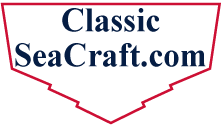
 |
|
#1
|
|||
|
|||
|
Does anyone know if ball valves are OK to use with gasoline?
I am setting up my water separator from two tanks and want to use them. I searched online and can't find any straight specs or answers, I must be missing something. I was specifically looking at Apollo because they are availiable. I have seen them used for diesel but not gas in the past. How about the effect of Ethanol on these. Thanks in advance.  
__________________
May all your deadrise be variable. My 1973 SeaCraft 20SF Parker 2530 DVEC Boston Whaler 15 1984 |
|
#2
|
|||
|
|||
|
I've used these before:
http://www.westmarine.com/webapp/wcs.../10001/90/78/6 and they do show regular ball valves: http://www.westmarine.com/webapp/wcs.../10001/90/78/6 but I'm not sure weather there is a difference these and the kind used for water. Just make sure that you buy something specifically that says it can be used with fuel. strick
__________________
"I always wanted to piss in the Rhine" (General George Patton upon entering Germany) |
|
#3
|
|||
|
|||
|
Bryan,
On the ball valve,either on the body (forged in the bronze) of the valve or on the handle you should see WOG. This means the valve is approved for use with Water, Oil, Gas, you should also see the UL label on the valve. |
|
#4
|
|||
|
|||
|
Thanks for the info, WOG is the type of info I was looking for.
That first valve is what is on the current setup but I suspect they are leaking air on acceleration. The ball vaves just seem better. They are also cheaper. I will be drawing from two tanks and want to be able to shut off the tanks for reserve and such.
__________________
May all your deadrise be variable. My 1973 SeaCraft 20SF Parker 2530 DVEC Boston Whaler 15 1984 |
|
#5
|
|||
|
|||
|
Does anyone know if the G in WOG means gasoline or gas like CO2, argon. etc.
I know I am beating this to death but I just want to be sure before I hook this up. We have enought fuel issues to deal with this year. Price, Ethanol, Iraq, etc. Thanks guys.
__________________
May all your deadrise be variable. My 1973 SeaCraft 20SF Parker 2530 DVEC Boston Whaler 15 1984 |
|
#6
|
|||
|
|||
|
From a Google search:
WOG appears on certain types/models of block or check valves, indicating they are suitable for "water-oil-gas" service, where gas normally means natural gas or propane. The letters "WOG" are always in capital letters and are usually raised—having been cast with the valve body. This abbreviation sometimes appears as "W.O.G.". strick
__________________
"I always wanted to piss in the Rhine" (General George Patton upon entering Germany) |
|
#7
|
|||
|
|||
|
Yeah, I saw something along those lines in my searches too. Still the question, to use or not to use .... with gasoline? Is this going to be another component for ethanol to chew on???

__________________
May all your deadrise be variable. My 1973 SeaCraft 20SF Parker 2530 DVEC Boston Whaler 15 1984 |
|
#8
|
|||
|
|||
|
valve with WOG on it does not meant it is suitable for gasoline. if it only has teflon/TFE etc than it is fine. if it has elastomer seal such as Viton or Buna, i would not use it. check with apollo.
|
|
#9
|
|||
|
|||
|
Apollo literature says the seats and seals, stuffing box ring and seal washer are made of RPTFE. Anyone want to clear up the alphabet soup? I assume the TFE is teflon like edloh stated. What is RP? Rust Proof? Just kidding. They should be fine, yes?
__________________
May all your deadrise be variable. My 1973 SeaCraft 20SF Parker 2530 DVEC Boston Whaler 15 1984 |
 |
|
|